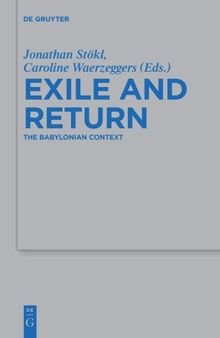 جزییات کتاب
جزییات کتاب
Many books of the Hebrew Bible were either composed in some form or edited during the Exilic and post-Exilic periods among a community that was to identify itself as returning from Babylonian captivity. At the same time, a dearth of contemporary written evidence from Judah/Yehud and its environs renders any particular understanding of the process within its social, cultural and political context virtually impossible. This has led some to label the period a dark age or black box - as obscure as it is essential for understanding the history of Judaism. In recent years, however, archaeologists and historians have stepped up their effort to look for and study material remains from the period and integrate the local history of Yehud, the return from Exile, and the restoration of Jerusalem's temple more firmly within the regional, and indeed global, developments of the time. At the same time, Assyriologists have also been introducing a wide range of cuneiform material that illuminates the economy, literary traditions, practices of literacy and the ideologies of the Babylonian host society - factors that affected those taken into Exile in variable, changing and multiple ways. This volume of essays seeks to exploit these various advances.



 دانلود کتاب
دانلود کتاب

 جزییات کتاب
جزییات کتاب





 این کتاب رو مطالعه کردید؟ نظر شما چیست؟
این کتاب رو مطالعه کردید؟ نظر شما چیست؟
